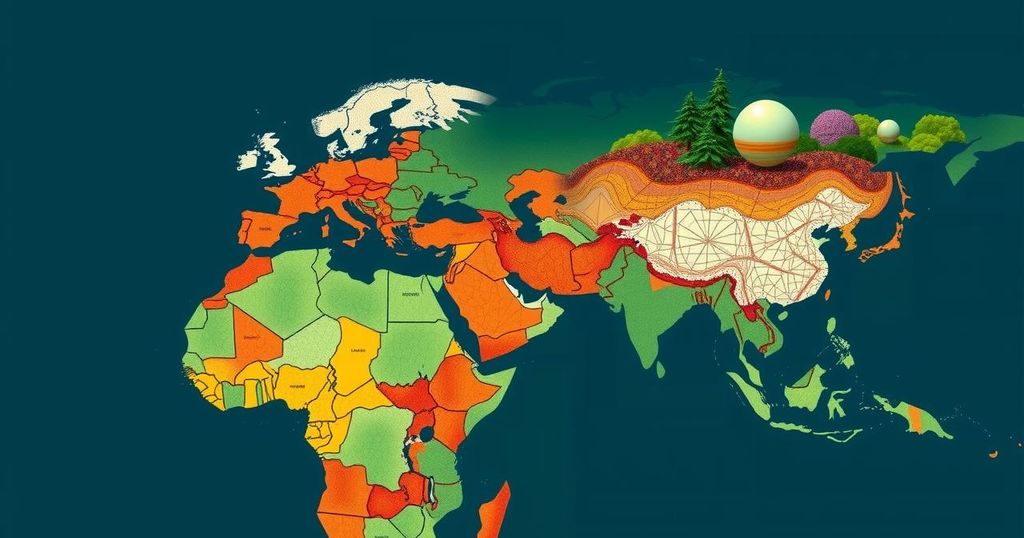Wealthy Nations Begin Compensating Developing Countries for Climate Damage
Wealthier nations are beginning to compensate poorer countries for climate-induced damages, as evidenced by the payments made to individuals affected by Cyclone Freddy in Malawi. Despite $720 million pledged, experts caution that this amount may be insufficient, with increasing climate threats necessitating enhanced support. COP29 climate summit negotiations focus on establishing responsibilities for developed nations to aid developing countries, ensuring ongoing assistance amid rising global climate challenges.
In the wake of devastating climate-related disasters, wealthier nations are beginning to provide financial compensation to poorer countries affected by climate change. The recent example of Cyclone Freddy in Malawi highlights the urgent need for such assistance. This particular cyclone displaced over 650,000 individuals, leaving many, including subsistence farmer Christopher Bingala, without homes or livelihoods. Fortunately, Bingala received a payment of approximately $750 from the Scottish government dedicated to aiding individuals impacted by climate change, marking a pivotal moment in the emerging recognition of climate-induced loss and damage.
This funding initiative aims to assist low-income countries grappling with the severe consequences of increased storms and droughts, situations they did little to contribute to. Despite roughly $720 million in pledges from countries such as the European Union and the United States, experts caution that these funds may fall significantly short as climate-related disasters intensify.
During the ongoing COP29 climate summit in Baku, Azerbaijan, negotiations are taking place to define the responsibilities of wealthier nations towards developing countries in terms of climate finance, which includes loans and investments. \”We just hope that the global north and the nations whose economy is fueled by the emissions – they come to the plate and take up their responsibility to look at what they’re causing us,\” stated Philip Davis, Prime Minister of the Bahamas.
The financial assistance for victims like Bingala is part of a pilot program where 2,700 families in Malawi received cash grants from the non-profit organization GiveDirectly. These funds have enabled many families to reconstruct their homes and stabilize their livelihoods following the destruction wrought by Cyclone Freddy.
As the occurrence of severe climate-related events escalates, the necessity for loss and damage funding will become increasingly urgent. As noted, one study predicts that the financial requirements will reach approximately $250 billion annually by the year 2030. Prime Minister Davis expressed the concern that inaction on the part of wealthier nations could have dire consequences, including the displacement of populations forced to become climate refugees.
The phenomenon of climate change disproportionately affects low-income countries that contribute minimally to global greenhouse gas emissions yet bear the severe consequences of environmental degradation. With intensifying weather patterns and natural disasters, these nations seek financial support from wealthier counterparts responsible for significant emissions. The concept of loss and damage funding has emerged to specifically address the financial needs arising from climate-related disasters. Scottish funds serve as a groundbreaking model for allocating resources to developing nations, helping them recover from devastating catastrophes and offering a framework for future funding initiatives at international climate conferences such as COP29.
The need for effective climate action and support mechanisms for vulnerable nations is paramount as climate-related disasters become more frequent and severe. Funding initiatives such as the loss and damage compensation system demonstrate a recognition of the moral obligation of wealthier nations to assist those most affected by climate crises. However, for these measures to bring meaningful relief, robust financial commitments and a comprehensive approach to address the multifaceted challenges posed by climate change must be undertaken urgently.
Original Source: www.kanw.com




Post Comment